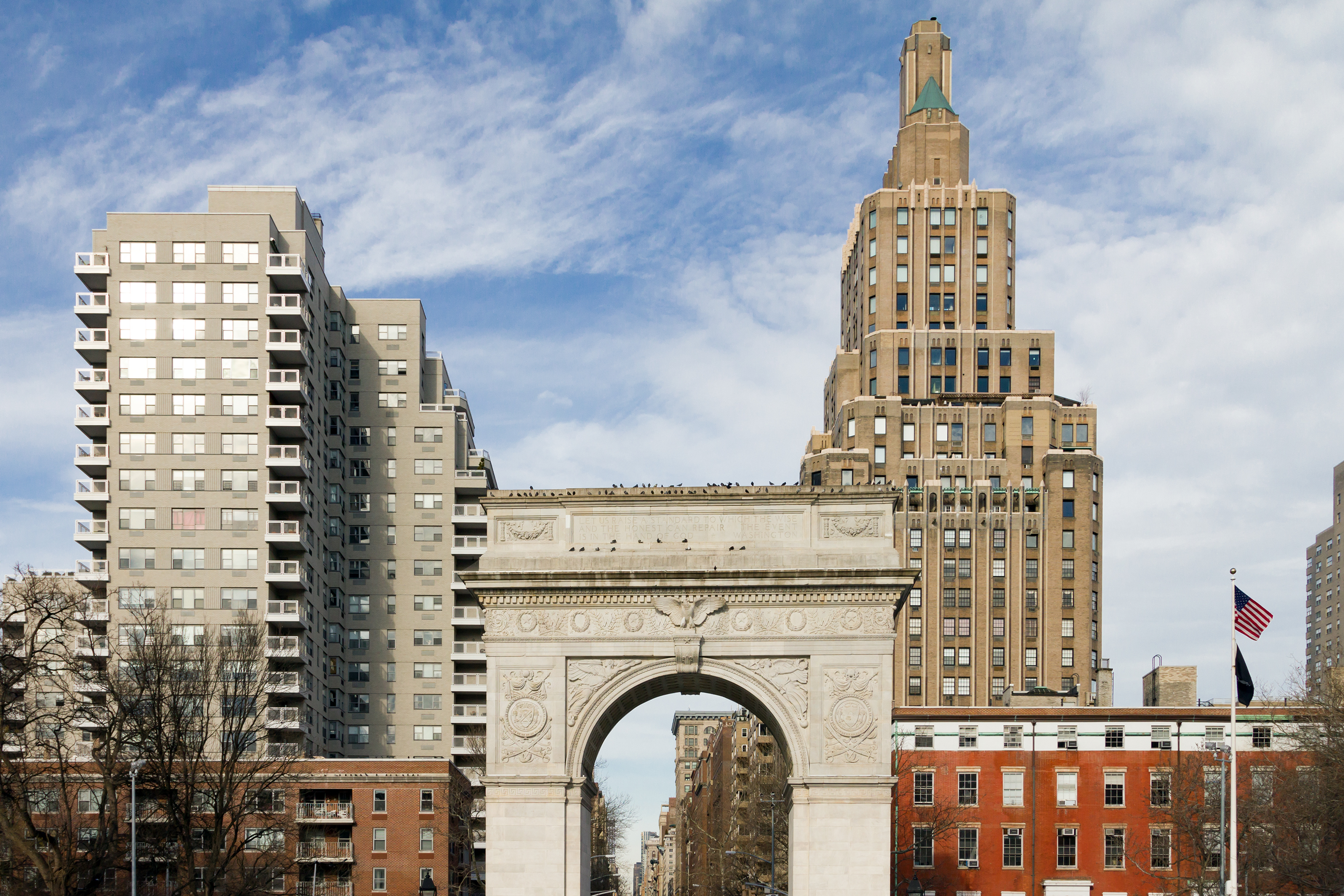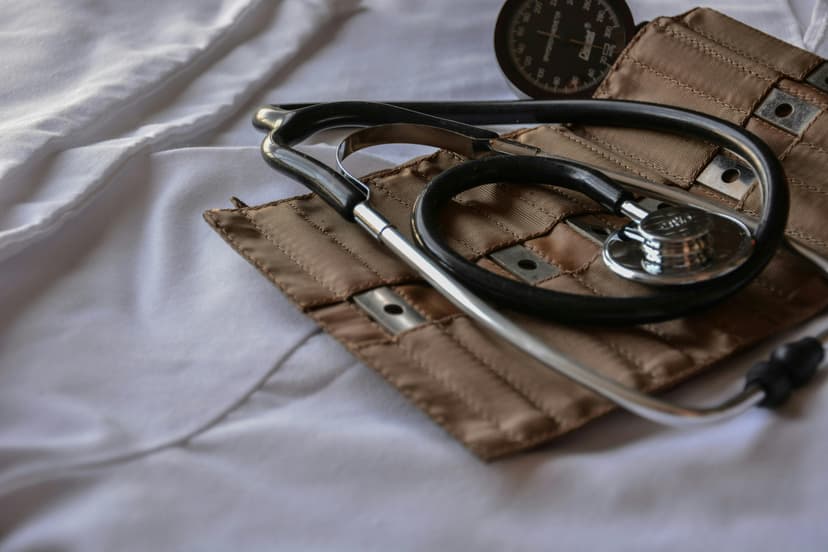How to Get Into NYU Medical School (Grossman) — Acceptance Rate, Requirements, & Ranking
Learn how to get into NYU Medical School with acceptance stats, admission requirements, and expert tips to strengthen your application.
Posted July 22, 2025

Join a free event
Learn from top coaches and industry experts in live, interactive sessions you can join for free.
Table of Contents
NYU Medical School (Grossman) is one of the most selective medical schools in the country. It’s part of New York University and closely affiliated with NYU Langone Health, one of the nation’s top academic medical centers. The school offers full-tuition scholarships to all admitted students and provides a flexible MD degree curriculum built around clinical training, research, and early career exploration. Its mission focuses on developing future healthcare providers through academic excellence, individualized education, and access to world-class medical education.
The admissions committee assesses a variety of student qualities including academic performance, interpersonal skills, and leadership potential, suggesting that demonstrated academic excellence is a key criterion for selection.
This guide covers everything applicants need to know about getting into NYU Grossman, including admissions stats, deadlines, program offerings, and tips to help strengthen your application.

How Hard Is It to Get Into NYU Medical School (Grossman)?
NYU Grossman School of Medicine is one of the most competitive medical schools in the country. The admissions process is highly selective, with a 2.5% acceptance rate and an emphasis on academic excellence, strong interpersonal skills, research experience, and personal attributes that align with the school’s mission.
For the Class of 2027, NYU Grossman received 8,271 applications. Of those, 821 applicants were invited to interview, 208 were accepted, and 106 students ultimately matriculated. Every incoming student at NYU Grossman receives a full-tuition scholarship. In line with the school’s commitment to reducing the financial burden of medical education, only 21% of Class of 2024 graduates left with medical school debt, well below the national average. Those who did graduate with debt had an average balance of $67,752. In addition to academic achievement, the admissions committee holistically evaluates life experiences, meaningful achievements, community involvement, and qualities that complement demonstrated academic excellence. They also consider the ability to become a future healthcare provider who demonstrates leadership and service in medicine.
You can view the official stats and more details here: MD Admissions by the Numbers
Programs Offered by NYU Grossman School of Medicine
NYU Grossman School of Medicine’s academic programs are designed to offer both structure and flexibility. At the center of this is the Curriculum for the 21st Century (C21), which blends foundational science, early clinical exposure, and personalized exploration. Students are trained to deliver high-quality patient care, contribute to innovative research, and engage in community-based health initiatives. This comprehensive approach supports students throughout their medical school journey, helping them develop the personal attributes and experiences necessary for success.
Every student enrolled in the MD degree program receives a Full-Tuition Scholarship, regardless of financial background or academic merit. This approach removes the financial barrier to entry, giving students the freedom to pursue specialties based on personal interest and impact, not cost. NYU Grossman was the first medical school in the U.S. to offer full tuition coverage to all MD students.
MD Program (Doctor of Medicine)
The standard four-year MD degree is divided into three structured stages, each with a clear purpose in a student’s development as a physician:
Stage One: Preclerkship Curriculum
This phase focuses on core sciences and early clinical skills. Courses include biology, anatomy, biochemistry, pathology, pharmacology, and physiology. Students also complete the Foundational Clinical Skills module. At the end of Stage One, students take the USMLE Step 1 and participate in a summer career exploration fellowship.
View the Stage One: Preclerkship Curriculum
Stage Two: Clerkship Year
During the clerkship year, students train at NYU Langone Health, NYU Langone Hospital, Brooklyn, NYU Langone Hospital, Long Island, and other affiliated sites. Core clerkships include:
- Internal Medicine
- General Surgery
- Pediatrics
- Psychiatry
- OB/GYN
- Neurology
- Ambulatory Care
Students also complete clinical skills assessments and elective rotations during this phase.
View the Stage Two: Clerkship Year
Stage Three: Individualized Exploration
The final stage allows students to personalize their education through advanced electives, clinical sub-internships, and scholarly research. Required components include:
- Advanced Clinical Skills Module
- Subinternship in Advanced Medicine, Surgery, or Pediatrics
- Senior Clinical Skills Exam (Night-on-Call simulation)
- Research or scholarly concentration (topics may include global health, health systems, patient safety, or ethics)
- Preparation for residency interviews and transition to internship
Students take the USMLE Step 2 during this phase.
View the Stage Three: Individualized Exploration
Three-Year MD Program
Launched in 2013, the three-year MD pathway is an accelerated track for select students pursuing primary care or other specialties offered at NYU residencies. Students apply to this program during their first year of medical school or through a separate tertiary application during the admissions cycle. Those admitted receive a guaranteed residency slot at NYU Langone.
This option offers a fast-track route to residency without sacrificing training quality. Students complete all core academic and clinical requirements and remain eligible to return to the four-year track if needed.
View the Three-Year MD Program
Dual MD/Master’s Degree Programs
NYU Grossman offers multiple dual-degree options for students looking to expand their training in research, public health, ethics, or management. These degrees can be completed in four to five years. Available dual-degree combinations include:
- MD/PhD – For students pursuing careers in academic medicine or biomedical research (via the Vilcek Institute)
- MD/MBA – In partnership with NYU Stern, focuses on leadership and management in healthcare
- MD/MPH – Combines medicine and public health for careers in global health, health systems, or policy
- MD/MA in Bioethics – Provides training in ethics for clinical practice, policy, or research oversight
- MD/MS in Clinical Investigation – Supports students interested in clinical and translational science
- MD/MS in Biomedical Informatics – Ideal for students pursuing careers in computational biology or digital health
Students may also pursue a research year after Stage Two before resuming Stage Three, especially if they’re planning to complete a dual degree or apply for research-intensive residencies.
View the Dual MD/Master’s Degree Programs
Research and Electives
NYU Grossman emphasizes early and frequent exposure to research. Students complete at least one scholarly concentration as part of the curriculum and may conduct research in areas such as:
- Translational science
- Patient safety and quality improvement
- Health equity and healthcare systems
- Bioethics
- Innovation and emerging technologies
Students have access to mentorship from NYU faculty and research centers, including the Perlmutter Cancer Center and NYU Grossman’s clinical departments.

Admissions Requirements - Who Gets Into NYU Grossman?
NYU Grossman School of Medicine is one of the most selective medical schools in the U.S. With an acceptance rate of just 2.5%, the admissions process is competitive and holistic. The admissions committee evaluates demonstrated academic excellence, test scores, professional experiences, personal background, and student qualities that align with the school’s mission to train future healthcare providers and physician-scientists.
NYU Grossman accepts applications through the AMCAS system. International applicants are welcome if they’ve earned a bachelor’s degree from an accredited college or university in the United States or Canada. International students should also be aware of the scholarship opportunities and the requirement of a relevant educational background.
Academic Requirements
To be eligible, applicants must meet the following basic criteria:
- Hold a bachelor’s degree from an accredited U.S. or Canadian college or university
- Submit MCAT scores within three years of their intended matriculation
- Complete the AMCAS primary application and NYU Grossman’s secondary application
- Provide at least one premedical committee appraisal letter (preferred) or two individual faculty letters, with at least one from a science instructor
- Complete a criminal background check if admitted
NYU Grossman does not require CASPer or situational judgment tests. Students are not required to major in a specific field but must demonstrate strong academic performance and readiness for rigorous medical educational training.
Recommended Premedical Coursework
There are no strict prerequisites, but applicants are strongly encouraged to complete coursework in the following areas:
- Inorganic chemistry with lab
- Organic chemistry with lab
- Biochemistry with lab
- General biology with lab
- General physics with lab
- Genetics
- Statistics
- English
Coursework taken at professional schools (dental, pharmacy, veterinary, or nursing programs) is considered but not counted as credit toward medical school requirements.
MCAT Scores
The Medical College Admission Test (MCAT) is required for all applicants. Scores must be no older than three years from the expected enrollment year. For example, if applying for the 2025 cycle, the oldest acceptable MCAT test date is January 2022.
NYU Grossman accepts multiple MCAT attempts and reviews the highest valid score. The exam is used to assess applicants' understanding of scientific concepts, critical thinking, and problem-solving ability.
MCAT Statistics (Most Recent Class):
- Median MCAT: 523
- Range: 516–527
- Average MCAT: 522.4
For details on how your GPA and coursework are calculated by AMCAS, see the official AMCAS Grade Conversion Guide.
GPA Requirements
Applicants must have a strong academic record, particularly in the sciences. NYU Grossman does not set a minimum GPA but admitted students typically have near-perfect academic performance.
GPA Statistics (Most Recent Class):
- Median GPA: 3.98
- Range: 3.79–4.0
- Average GPA: 3.95
Letters of Evaluation
Applicants are required to submit:
- One premedical committee letter (strongly preferred)
- OR two individual faculty letters, with at least one from a science professor
- Nontraditional applicants may submit two letters from professional colleagues
- All letters must be submitted via the AMCAS Letter Service by the secondary application deadline (November 15)
Note: Letters sent directly to NYU Grossman will not be accepted.
Interview Process
Roughly 10% of applicants are invited to interview. NYU Grossman uses a Multiple Mini Interview (MMI) format, which consists of eight short, timed virtual stations. These are designed to assess decision-making, critical thinking, communication skills, and the ability to work with patients.
For more on the MMI, visit What to Expect from the Multiple Mini Interview.
Technical Standards and Background Checks
All admitted students must meet NYU Grossman’s technical standards, which outline the physical, cognitive, and behavioral abilities required for success in medical school. Additionally, admitted students must complete a criminal background check to ensure patient safety.
NYU Grossman School of Medicine Class of 2024 Profile
| Metric | Value |
|---|---|
| Total Applicants | 8,271 |
| Total Interviewees | 821 |
| Total Accepted | 208 |
| Incoming Class Size | 106 |
| MD Students | 91 |
| MD/PhD Students | 13 |
| OMS Students | 2 |
| Median MCAT Score | 523 (Range: 516–527) |
| Median GPA | 3.98 (Range: 3.79–4.0) |
| Acceptance Rate | 2.50% |
| Average Age | 23 (Range: 20–30) |
| Gender Split | 51% men, 49% women |
| Total Enrollment (All Years) | 422 |
| Languages Spoken | Arabic, Bengali, Chinese, French, German, Hebrew, Italian, Spanish, Ukrainian |
| Students Receiving Scholarships | 100% |
| Graduates with Educational Debt (Class of 2024) | 21% |
| Average Medical Educational Debt | $67,752 |
To view more details, visit the official MD admissions profile.
How to Apply to NYU Medical School (Grossman)
NYU Grossman School of Medicine uses the American Medical College Application Service (AMCAS) to process applications. The admissions process includes a primary AMCAS application, a secondary application through NYU's online portal, and, for applicants to the three-year MD program, a tertiary application.
Grossman’s admissions committee holistically evaluates applicants based on academic record, standardized test performance, letters of evaluation, secondary essay responses, and personal background. Candidates are encouraged to apply early, as interviews are scheduled on a rolling basis.
Application Timeline (2024–2025 Cycle)
| Date | Milestone |
|---|---|
| May 3, 2024 | AMCAS application opens |
| May 31, 2024 | AMCAS submissions begin |
| July 2024 | NYU Grossman begins sending interview invitations |
| September 2024 | Interview season begins |
| October 15, 2024 | AMCAS primary application deadline |
| November 15, 2024 | Secondary application deadline |
| December 2024 | Interview season ends |
| January 31, 2025 | Tertiary application deadline for 3-year MD |
| January 2025 | Admissions decisions released |
| February 20, 2025 | “Plan to Enroll” option opens in AMCAS |
| April 15, 2025 | Applicants may hold no more than three acceptances |
| April 30, 2025 | “Commit to Enroll” option opens (must withdraw from other offers) |
| June 17, 2025 | Final “Commit to Enroll” deadline (3 weeks before orientation) |
| July 8, 2025 | Orientation and classes begin |
View the full admissions timeline
Step 1: Submit the AMCAS Application
The AMCAS primary application includes:
- Personal identifying and biographic information
- Academic history and official transcripts
- MCAT score(s) from the last three years
- Up to 15 work and activities entries (e.g. employment, research, publications, honors, community service)
- Personal statement (5,300-character limit)
- School list, including NYU Grossman
Read the Application Grade Conversion Guide
Important Note: Do not send transcripts directly to NYU Grossman. All documents must go through AMCAS.
Step 2: Complete the NYU Grossman Secondary Application
Once your primary application is verified, NYU Grossman will invite you via email to complete the secondary application through the AMP portal.
- Fee: $110 non-refundable (fee waivers available via AAMC Fee Assistance Program)
- CV/Resume: Required
- Deadline: November 15, 2024
Secondary Essay Prompts Include:
- Optional explanation of academic record fluctuations
- Optional explanation of any time taken off from school
- Qualities and experiences that make you suited to the medical profession
- One of the following:
- A personal accomplishment you're most proud of
- A challenge you’ve faced involving respect and differing perspectives
- A teamwork-related conflict and how you resolved it
- Optional: Up to three residency specialties of interest (does not affect admissions)
Source: NYU Grossman How to Apply
Step 3: Submit Letters of Recommendation
Applicants must submit letters of evaluation through the AMCAS Letter Service by November 15, 2024.
Required Letter Options:
- Preferred: One premedical committee appraisal letter
- Alternative: Two letters from professors (one must be a science instructor)
- Nontraditional applicants: Two letters from professional colleagues
Note: Letters sent directly to NYU Grossman will not be accepted.
Step 4: Tertiary Application for the Three-Year MD Pathway (Optional)
Applicants interested in the accelerated three-year MD program can opt-in through a tertiary application submitted via the AMP portal.
- You’ll indicate your residency specialty of interest
- Submit two additional essays describing your interest in and qualifications for the selected residency program
- Deadline: January 31, 2025 at 11:59 PM ET
Students can also apply for the three-year track after enrolling in the standard four-year program. Learn more about this accelerated pathway here.
Step 5: Interview Process
NYU Grossman invites about 10% of applicants to interview. The school uses the Multiple Mini Interview (MMI) format.
- Format: Eight virtual stations with faculty, staff, or medical students
- Focus: Situational questions that test reasoning, communication, ethics, and professionalism
- One open-ended station may ask traditional behavioral or motivation-based questions
Note: Be prepared to discuss past experiences in patient care, teamwork, and managing difficult conversations. The interview assesses more than academics, it helps the admissions committee understand your ability to succeed in the medical profession.
Step 6: Admissions Decision
All applicants will be notified of their admissions status by January 2025. Admitted students must:
- Complete a criminal background check (free of charge)
- Meet technical standards as defined by the school (physical, cognitive, and behavioral requirements)
5 Expert Tips for Getting Into NYU Grossman
1. Shape Your Application Around NYU Grossman’s Mission: “To Care, To Teach, To Discover”
NYU Grossman’s core mission isn’t just a tagline; it’s the lens through which the admissions committee evaluates applicants. The curriculum is designed to integrate clinical care, medical education, and innovative research. That means your application should consistently reflect these three priorities. Most applicants highlight clinical shadowing or research in isolation. What sets you apart is your ability to show how those experiences connect. For example, if you worked in a research lab on patient-centered outcomes, tie that to your desire to improve care delivery. If you’ve mentored others in clinical settings or helped design health education workshops, connect that to the teaching pillar. Think beyond roles. Demonstrate how you applied your skills to improve care, expand access to knowledge, or contribute to discovery in medicine.
2. Don’t Just Have a High MCAT-Show That You Know How to Think Like a Doctor
With a median MCAT of 523, academic excellence is the baseline at NYU Grossman, not the differentiator. The admissions committee pays close attention to how applicants demonstrate clinical judgment, ethical reasoning, and interpersonal awareness, especially in the secondary essays and the Multiple Mini Interview (MMI). One of the most effective ways to stand out is to use clinical exposure to explain how you think. In your Work/Activities section or secondary essays, don’t just describe what you saw. Reflect on how decisions were made in real-time, how physicians communicated with patients, or how teams worked together in high-pressure situations. These are the kinds of insights that suggest you’re already thinking like a future healthcare provider, not just a student with strong test scores. NYU Grossman’s core mission isn’t just a tagline; it’s the lens through which the admissions committee evaluates applicants. Connecting your personal experiences and qualities to the offerings of the NYU School of Medicine in your secondary application essays can showcase how your unique background makes you a suitable fit for the program.
3. Use Your Secondary Essays to Signal Fit for the Three-Year MD Pathway
Even if you’re not applying to the accelerated program, showing alignment with its core values can work in your favor. NYU Grossman’s three-year MD pathway is designed for students with clear career goals and strong time-management and decision-making skills. That focus on early career exploration extends to the traditional MD program as well. Use the secondary prompts about residency interests or meaningful experiences to communicate direction. For example, if you’ve been involved in a specialty-specific project or longitudinal research in areas like oncology, neurology, or health policy, include those with context. The admissions committee values students who are intentional about their future. A well-framed narrative about how your undergraduate experience shaped your interest in a specific residency area can show maturity and alignment, even if you later pivot.
4. Build Your Letters of Evaluation Strategy with Purpose, Not Convenience
Too many applicants treat letters of recommendation as a checklist item. At NYU Grossman, these letters carry more weight than at most schools, especially for nontraditional applicants or those who didn’t attend a well-known undergrad institution. If you’re submitting individual letters instead of a committee letter, make sure each recommender adds something distinct to your profile. One should speak directly to your scientific rigor and academic excellence (ideally from a lab-heavy course), while another should reflect your communication skills, leadership, or clinical maturity. For nontraditional applicants, letters from supervisors or healthcare professionals you’ve worked with closely can carry just as much weight, provided they speak to your readiness for a rigorous, patient-focused MD program. NYU’s admissions committee reads every word. Generic letters are obvious and will work against you.
5. Translate Research Experience Into Impact, Not Just Lab Time
NYU Grossman isn’t a research-first school like Harvard or Stanford, but it does expect applicants to understand how science drives clinical care. If you’ve participated in research, focus on what the work meant, not just what you did. Avoid listing lab techniques or datasets. Instead, explain the clinical relevance of the project, the patient population it aimed to benefit, or what policy implications it might have. If you presented your research at a conference or contributed to a publication, describe what that experience taught you about communicating complex ideas. Admissions reviewers are looking for physician-scientists who can bridge the lab and the clinic. Applicants who articulate the downstream value of their work, not just their time commitment, demonstrate that they’re already thinking like contributors to the medical profession, not passive observers.
The Bottom Line
Getting into NYU Grossman School of Medicine is extremely competitive, but for students with a record of academic excellence, meaningful clinical or research experiences, and a clear understanding of how they’ll contribute to medicine, it’s one of the most rewarding options available. The school’s full-tuition scholarship removes a major financial barrier, making it possible to focus on mission-driven specialties or pursue dual degrees without long-term debt. What sets successful applicants apart is not just strong grades or test scores, but their ability to connect their background, values, and career goals to NYU Grossman’s integrated approach to patient care, teaching, and discovery. If you’re committed to becoming a future healthcare provider with the mindset of a leader, clinician, and scholar, NYU Grossman can be an ideal fit.
Need help strengthening your application, preparing for the MMI, or writing standout secondaries for NYU Grossman or other top programs? Work one-on-one with a medical school admissions coach.
Related Articles
For more information as you apply for medical schools, check out these resources:
- A Guide to the T20 Medical Schools in the U.S.
- Medical School Application Timeline: The Ultimate Guide
- Harvard Medical School: Admission Requirements and Application Process
- The Ultimate Guide to the Medical School Application Process
- Stanford University School of Medicine: Admission Requirements and Application Process
Frequently Asked Questions
Is NYU the hardest med school to get into?
- NYU Grossman School of Medicine is among the most selective medical schools in the United States. For the most recent cycle, it had an acceptance rate of 2.5%, with 8,271 total applicants and only 208 accepted. The median MCAT score was 523, and the median GPA was 3.98, making it one of the most academically competitive MD programs in the country.
What is the #1 medical school in the US?
- Medical school rankings vary depending on the criteria used. According to U.S. News & World Report, top-ranked institutions for research typically include Harvard Medical School, Johns Hopkins University, Stanford University, and NYU Grossman School of Medicine, which consistently ranks in the top 5 for research. NYU Grossman also ranks #1 for quality of care, according to Vizient.
What MCAT score is required for NYU Medical School?
- There is no minimum MCAT score required to apply. However, the median MCAT score for admitted students is 523 (range: 516–527). NYU Grossman accepts scores up to three years old at the time of matriculation and evaluates the highest valid score for each applicant.
Does NYU still pay for medical school?
- Yes. Every student enrolled in NYU Grossman’s MD program receives a Full-Tuition Scholarship, regardless of merit or financial need. This scholarship covers the full cost of tuition and is part of the school’s effort to reduce the financial burden of medical education. Additionally, students may qualify for need-based aid to cover housing, food, books, and other living expenses.
Browse hundreds of expert coaches
Leland coaches have helped thousands of people achieve their goals. A dedicated mentor can make all the difference.


















